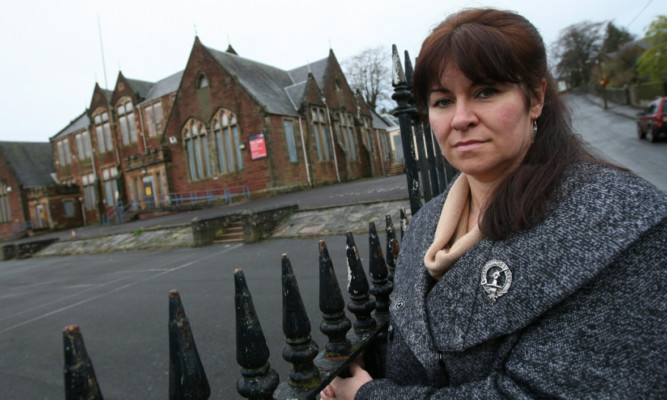A confidential report released by Perth and Kinross Council to show why it controversially rejected a community-led regeneration bid has been slammed for “raising more questions than answers”.
The Ericht Trust had widespread support for its plan to take over Blairgowrie’s old Hill Primary School and convert it into a multi-million-pound heritage and cultural hub.
Volunteers lodged their proposal with council chiefs after three-and-a-half years of planning and fundraising.
However, the community charity was dealt a major blow last month when it emerged council chiefs had rejected the plan in favour of a housing development.
The decision was taken during a private meeting of the council’s property sub-committee at the end of October.
The Courier has obtained a copy of the report issued to councillors at the meeting following a Freedom of Information request.
However, the paper has been heavily redacted with huge chunks of text, including entire sections on funding, economic benefits, conclusions and recommendations withheld.
A council spokesman said: “The majority of the report remains commercially sensitive as negotiations are not yet complete.
“The disclosure of this information would inhibit the ability of the council to operate in a market where the confidentiality of negotiations is expected, at least until they are completed.”
Blairgowrie and Rattray Community Council had hoped the report would explain why the trust’s bid had been rejected.
Chairwoman Morag Young said: “Unfortunately, this report raises more questions than answers. For such a significant project, we would expect more transparency and openness.
“We are now hoping to arrange a meeting with officials from the council who might be able to explain why this housing plan was voted for in favour of the Ericht Trust’s development.
“We have nothing against the housing developers, but we just feel that the community would have benefited more from the creation of a heritage and cultural centre. People should be told the reasons why this plan was rejected.”
More than 6,000 hours of volunteers’ time and at least 230 hours of pro bono work from professionals went into the trust’s application.
The plans included a cinema, arts and crafts workplace, cafe, shop and function hall.
Earlier this year, the trust said the revised cost of the project was about £4.8m. The plan had already won support from, among others, SSE, the Architectural Heritage Fund, the Heritage Dragons and the Association of Industrial Archaeologists.
